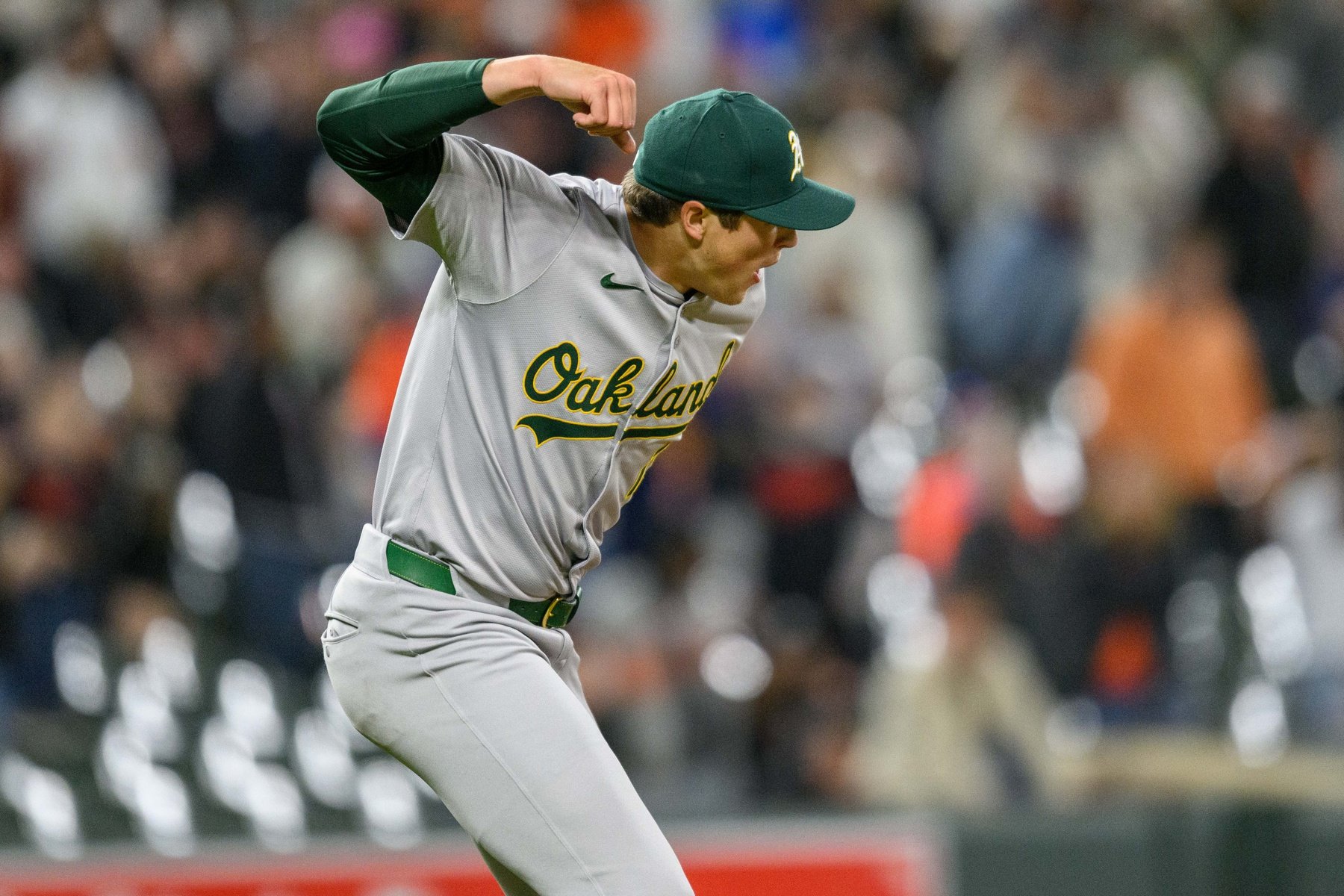
Should the Twins Consider Acquiring the 25-Year-Old Star Player?
Rumors are swirling that the Oakland Athletics are open to trading their standout young reliever, Mason Miller. Should the Minnesota Twins be interested?
In the early months of the MLB season, A’s closer Mason Miller has emerged as one of the league’s most electrifying young talents. In 26 innings pitched, Miller boasts an impressive 2.08 ERA and a remarkable 0.85 FIP.
Miller’s arsenal includes a triple-digit fastball and a devastating slider, leading to a staggering 51.5% strikeout rate. He also leads all relievers in fWAR at 1.4 and ranks in the top 10 for Win Probability Added.
With the Oakland Athletics in disarray until their move to Las Vegas, they are open to trade offers, potentially cashing in on Miller’s peak value.
Should the Twins pursue him? This decision involves weighing significant benefits against notable drawbacks.
Miller’s elite skills could transform the Twins’ bullpen from solid to exceptional, a crucial advantage in playoff scenarios where late-inning performance is key. Pairing him with elite reliever Jhoan Duran and standout Griffin Jax, and potentially Brock Stewart, could create a formidable bullpen.

Additionally, acquiring Miller, a cost-controlled, high-impact player, aligns with the Twins’ financial constraints. Given the uncertainty surrounding their television deal and the ownership’s reluctance to increase payroll, Miller’s rookie contract offers substantial value.
However, obtaining Miller would require a significant package of prospects. According to Ken Rosenthal, the A’s would demand either a young player of comparable talent or a substantial package of multiple top-tier prospects.
The Twins have a robust farm system, but parting with top prospects always carries risk. A deal for Miller might involve two top-100 prospects plus additional talent, a steep price for a reliever.
Relievers typically do not provide the same value as starters or position players due to fewer innings pitched and limited impact to high-leverage situations. Overpaying for a reliever can be detrimental. The Twins must evaluate if the bullpen upgrade is worth the prospect cost.
Furthermore, Miller’s health history is a concern. Previously a starter, he was moved to the bullpen partly to manage his workload. In his four-year professional career, he has never exceeded 52 2/3 innings in a season.
https://x.com/PitchingNinja/status/1793231102615674946?ref_src=twsrc%5Etfw%7Ctwcamp%5Etweetembed%7Ctwterm%5E1793231102615674946%7Ctwgr%5Ec97be1aa979fdfe49aa2e52e1a275308e235492d%7Ctwcon%5Es1_&ref_url=https%3A%2F%2Ftwinsdaily.com%2Findex.php%3Fapp%3Dcoremodule%3Dsystemcontroller%3Dembedurl%3Dhttps%3A%2F%2Fx.com%2FPitchingNinja%2Fstatus%2F1793231102615674946
Deciding to trade for Miller is complex. His addition could make the Twins’ bullpen one of the most feared in baseball, enhancing their postseason prospects. However, the prospect cost and the risks associated with relievers make this a significant gamble.
Considering the Twins’ financial limitations and playoff ambitions, Miller represents a unique opportunity to add an impactful player without a large financial outlay. But the high prospect cost and inherent risks make this a challenging decision.
What do you think? Should the Twins pursue a trade for Mason Miller?

Leave a Reply